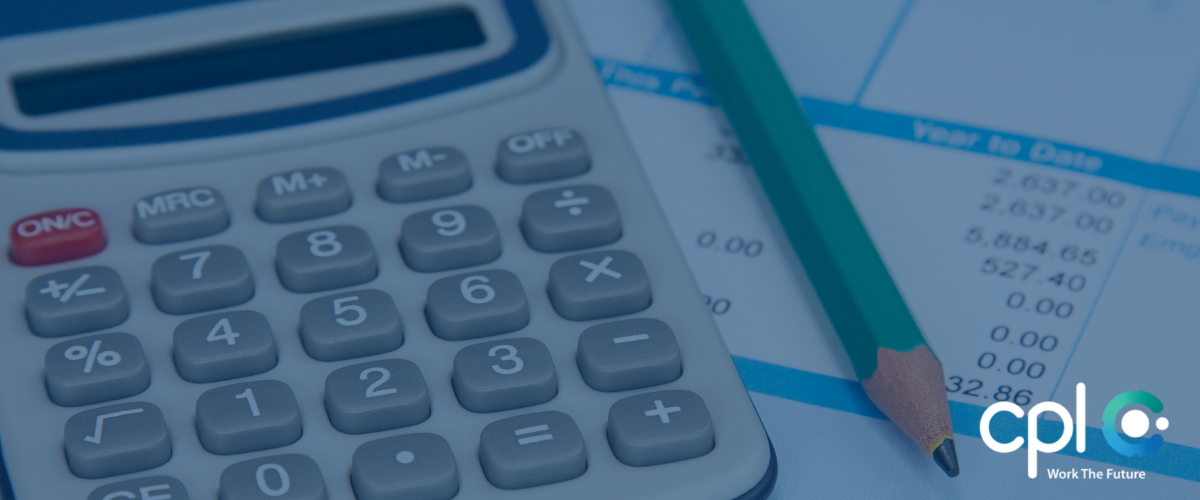In a Cpl Employment Monitor survey over 72% of respondents confessed to having been emergency taxed.
In Ireland, according to Revenue, your employer is legally required to charge emergency tax in certain situations. Emergency tax policies can get complicated, so to help ensure you don’t get charged emergency tax we’ve gathered all the necessary Emergency Tax information for workers in Ireland.
Emergency tax is the taxation of all your earnings at a higher rate of tax for a temporary period and results in a lower wage than normal. The good news is it’s avoidable and if you do get emergency taxed you’ll get it back.
When is Emergency Tax applied?
Emergency tax is applied when you don’t register a new job with the Tax Revenue Commission. This happens if your employer hasn’t received a:
You don’t provide your employer with a PPSN
Your employer hasn’t received a Revenue Payroll Notification (RPN) – this is managed by the Revenue
In each case, you will be given a temporary tax credit for the first month and tax deductions will be increased from the second month onwards.
The effect of emergency basis tax is that after 4 weeks no tax credits are given, and tax is paid at a higher rate from week 9, regardless of the level of pay.
The emergency rate of USC (Universal Social Charge) will also be applied to your earnings at a rate of 8%.
How to register your employment with the Revenue and avoid emergency tax
Option 1: If this is your first job in Ireland
Suppose you haven’t worked in Ireland or registered with the Revenue for tax credits before you must register, even if you are only starting a part-time or temporary job. Registering online here is the only option.
When you start your first job, you should tell Revenue or you’ll end up paying emergency tax. After registering, the Revenue will send an RPN to your new employer so that the employer knows the correct amount of Income Tax (IT) and Universal Social Charge (USC) to deduct from your pay.
Visit the Revenue website for more information on what you must do when starting your first job.
Option 2 – Changing Jobs
If you change jobs all you need to do is provide your employer with your PPSN. Your employer can then request an RPN from the revenue and ensure you pay the right amount of tax.
Ask the Finance team at your new job or visit the Revenue Website for more information on what you should do when you are changing jobs.
Option 3 – Second or Multiple Jobs
If you work in two (or more) jobs at the same time, you must let the Revenue know as soon as you start another job so they can send your tax credit certificate for that job. Otherwise, your new employer may deduct the wrong amount of tax and you may be put on emergency tax.
How to get Emergency Tax back
To get a refund register your employment with the Revenue (using the steps above) and they will send an RPN to your employer.
You’ll then get any extra tax and Universal Social Charge (USC) you’ve paid refunded in your next pay. If you leave your job before getting the refund, you can also claim a tax refund directly from the Revenue. Whereas if you leave and begin a new role your new employer will deal with the refund.
Conclusion
By following the basic rules above and ensuring your new job is registered with revenue you will avoid emergency tax and receive your correct wage from the beginning.
If you're looking for more job-seeking advice, check out our Candidate Directory or visit our live jobs page to view our current opportunities.
